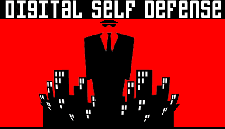
|
 |
|||||||
|
Black Hat Europe Training 2006 Course Length: 2 days. All course materials, lunch and two coffee breaks will be provided. A Certificate of Completion will be offered. You must provide your own laptop.
|
Two Day Course
28 February - 1 March
|
The Exploit Laboratory - Buffer Overflows For Beginners |
|||||||
|
Saumil Udayan Shah & S.K. Chong |
|||||||
|
What to bring:
Bootable Linux CDs or shell access to Linux accounts will be provided for the Linux attack exercises. All tools such as the Visual C++ toolkit (free), Cygwin, etc will be provided on CD. |
OVERVIEW The class will cover analysis of stack overflows, heap overflows and format string vulnerabilities. Examples of vulnerabilities shall be provided on both the Windows as well as the Unix platform. The class is highly hands-on and very lab intensive. The hands-on lab provides real-life examples of programs containing vulnerabilities, and participants are required to analyse and exploit these vulnerabilities. LEARNING OBJECTIVES
WHO SHOULD ATTEND PARTICIPANTS ARE REQUIRED TO
WHAT TO BRING Laptop:
Bootable Linux CDs or shell access to Linux accounts will be provided for the Linux attack exercises. All tools such as the Visual C++ toolkit (free), Cygwin, etc will be provided on CD. |
||||||
|
ISC2 CISSP/SCCP CPE Credits Course Length: 2 days All course materials, lunch and two coffee breaks will be provided. A Certificate of Completion will be offered. You must provide your own laptop.
|
|||||||
|
Trainer:
|
Saumil Udayan Shah Saumil continues to lead the efforts in e-commerce security research at Net-Square. His focus is on researching vulnerabilities with various e-commerce and web based application systems. Saumil also provides information security consulting services to Net-Square clients, specializing in ethical hacking and security architecture. He holds a designation of Certified Information Systems Security Professional. Saumil has had more than nine years experience with system administration, network architecture, integrating heterogenous platforms, and information security and has perfomed numerous ethical hacking exercises for many significant companies in the IT area. Saumil is a regular speaker at security conferences such as BlackHat, RSA, etc. Previously, Saumil was the Director of Indian operations for Foundstone Inc, where he was instrumental in developing their web application security assessment methodology, the web assessment component of FoundScan - Foundstone's Managed Security Services software and was instrumental in pioneering Foundstone's Ultimate Web Hacking training class. Prior to joining Foundstone, Saumil was a senior consultant with Ernst & Young, where he was responsible for the company's ethical hacking and security architecture solutions. Saumil has also worked at the Indian Institute of Management, Ahmedabad, as a research assistant and is currently a visiting faculty member there. Saumil graduated from Purdue University with a master's degree in computer science and a strong research background in operating systems, networking, infomation security, and cryptography. At Purdue, he was a research assistant in the COAST (Computer Operations, Audit and Security Technology) laboratory. He got his undergraduate degree in computer engineering from Gujarat University, India. Saumil is a co-author of "Web Hacking: Attacks and Defense" (Addison Wesley, 2002) and is the author of "The Anti-Virus Book" (Tata McGraw-Hill, 1996). S.K. Chong (CISSP) is a security consultant from SCAN Associates. His job allows him to play with all kinds of hacking tools and exploits in his penentration testing. Most often, he needs to modify and/or enhance these tools before it can be used for legal penetration testing for banks, ISPs goverment agencies, etc. If exploit code is not available, his understanding of security advisories, exploitation and buffer overflow concepts have allowed him to create exploit code on the fly. These experiences have helped him discover other similar yet new bugs. SK has authored security whitepapers on SQL Injection, Buffer overflows, Shellcode and Windows Kernel research, including one of which was published in Phrack E-zine #62. His research hsa been presented in many security conferences around the world like Blackhat, XCon, HITBSecConf, etc. |
||||||
|
(c) 1996-2007 Black Hat
|
